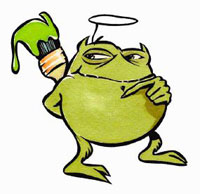
What is Greenwashing?
By The Editors
Greenwashing (or greenwash) is defined by the Oxford Dictionary as “Disinformation disseminated by an organization so as to present an environmentally responsible public image.” In other words, the term “greenwashing” applies to the attempts made by companies, organizations or political entities to falsely promote products, services or programs as environmentally friendly, or to deflect attention from environmentally unfriendly activities.
The general consensus is that the term “greenwashing” was originally coined in 1986 by Jay Westerveld, an environmentalist from upstate New York. Jay wrote an essay in which he claimed the hotel industry falsely promoted the reuse of towels as part of a broader environmental strategy, whereas the suggested practice of reusing towels was a cost-saving strategy.
We have not been able to find the much-cited 1986 essay anywhere — and, really, it doesn’t matter, as greenwashing is now a common term.
The best way to avoid getting “greenwashed” is to be aware of the different greenwashing strategies. As Greenpeace tells us: “Every day, Americans are bombarded with advertising about environmentally friendly goods and services. But how many really are green, and how many are just pretending?”
In 2007, TerraChoice Environmental Marketing (now part of the Underwriters Laboratories global network) launched a study of greenwashing by analyzing a variety of products. The result of the study was the identification of six patterns in greenwashing, which were defined as the Six Sins of Greenwashing. In 2009, a follow-up study identified a total of seven sins (The seven sins of Greenwashing). A seven sins wallet card (you can download it here) is available on sinsofgreenwashing.org — it will help you to make educated, greener purchases!!! It includes tips to avoid purchasing products that commit the Seven Sins of Greenwashing, plus a guide to eco-labels.






6 Comments
Lise
Hi, I would be very interested to know if it was digitalized by now. I would be very interested in reading your original essay as we talk about it so often in class.
Don
I cannot find the essay anywhere either. It’s disturbing how many people appear to just be quoting Wikipedia about it, which in turn quotes news articles which appear to be quoting Wikipedia. Fortunately you are probably right: Getting the primary source probably doesn’t matter.
Jay Westerveld
My original essay isn’t digitized anywhere due to the fact that I penned it in 1986 in our university’s newspaper….which also has not been digitized.
I have shared it with many journalists who requested it, hcen its general acceptance.
In the arena of things “disturbing”, I find this article’s suggestion of Greenpeace as authority on the subject paradoxical, at best; Greenpeace, in my own epxerience, may be one of the world’s most prolific Greenwashers.
John
Are you the real dude?
jgunn5
Companies throw around, stretch the truth, and use the terms “being green/environmentally friendly” as a convenient slogan to sale a brand, cover up, and conceal corporate misbehavior. To me that is a huge issue!! The only way to correct this problem is to make people more aware of what’s going on and make them conscious of the 7 sins of green-washing. This will end company’s destructive policies and force them to actually begin to take part in sustainable environmentally safe practices and products.
cdao22
It looks like greenwashing is going down a little, and this could be because of people being aware of and reporting misleading information. Sometime directly contacting companies to tell them we’re aware of their greenwashing helps to get them to at least decrease their deceiving practices.